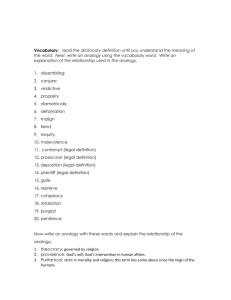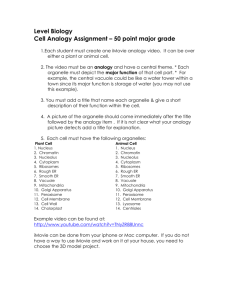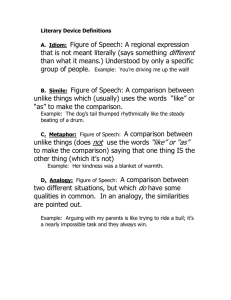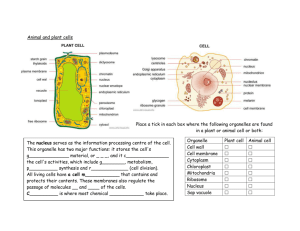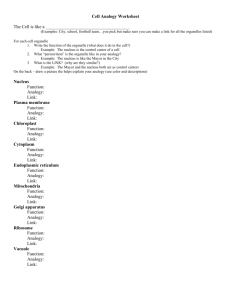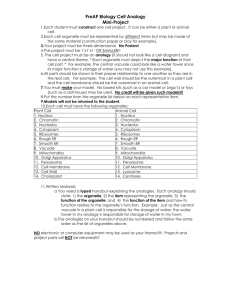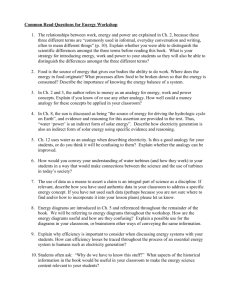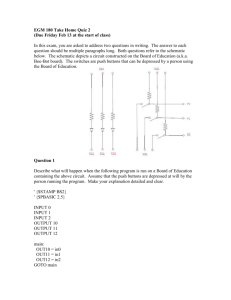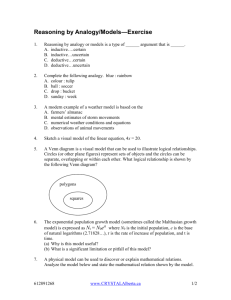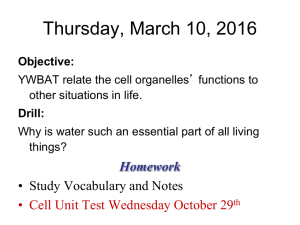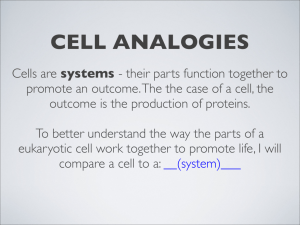Cell Analogy Worksheet: Understand Cell Organelles
advertisement
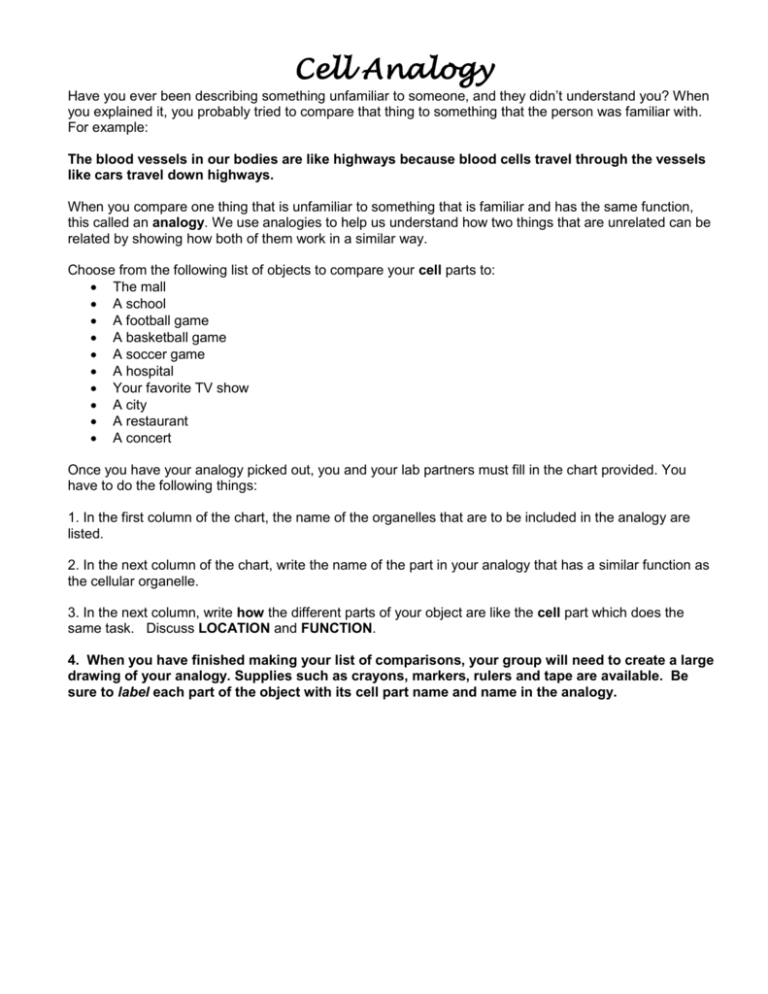
Cell Analogy Have you ever been describing something unfamiliar to someone, and they didn’t understand you? When you explained it, you probably tried to compare that thing to something that the person was familiar with. For example: The blood vessels in our bodies are like highways because blood cells travel through the vessels like cars travel down highways. When you compare one thing that is unfamiliar to something that is familiar and has the same function, this called an analogy. We use analogies to help us understand how two things that are unrelated can be related by showing how both of them work in a similar way. Choose from the following list of objects to compare your cell parts to: The mall A school A football game A basketball game A soccer game A hospital Your favorite TV show A city A restaurant A concert Once you have your analogy picked out, you and your lab partners must fill in the chart provided. You have to do the following things: 1. In the first column of the chart, the name of the organelles that are to be included in the analogy are listed. 2. In the next column of the chart, write the name of the part in your analogy that has a similar function as the cellular organelle. 3. In the next column, write how the different parts of your object are like the cell part which does the same task. Discuss LOCATION and FUNCTION. 4. When you have finished making your list of comparisons, your group will need to create a large drawing of your analogy. Supplies such as crayons, markers, rulers and tape are available. Be sure to label each part of the object with its cell part name and name in the analogy. Organelle Ex. DNA Nucleus Part in Analogy with similar task Ex. Captain of a cruise ship Bridge of the ship (control room) Explanation of how the organelle and part in analogy are similar The captain is like the DNA because he is in charge of the boat. The captain controls where the boat goes, and tells everyone what to do on the boat. The nucleus is like the bridge of the ship because it contains the captain. Nucleus DNA Cell Wall Cell Membrane Large central vacuole Protein Ribosomes Endoplasmic Reticulum Golgi Apparatus Chloroplast Mitochondria Lysosome Tips: The protein, ribosomes, ER and Golgi all need to be related. The protein is made by the ribosomes, the protein will travel through the ER and then the protein will be modified, and shipped out by the Golgi. Tie this all together in your analogy. The chloroplast takes sun energy and converts it into chemical energy (food). The mitochondria takes the chemical energy (food) and converts it into useable energy (ATP).
